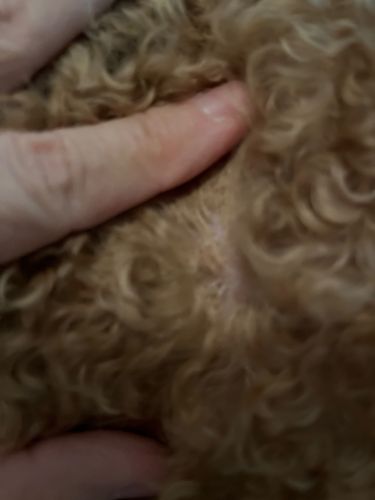Flea (likely Cat Flea or Dog Flea)
Scientific Name: Ctenocephalides felis (Cat Flea) or Ctenocephalides canis (Dog Flea) are the most common species found on domestic animals. Without microscopic examination, it's difficult to distinguish between the two from this image.
Order & Family: Order Siphonaptera, Family Pulicidae (for common species like Ctenocephalides felis and Ctenocephalides canis)
Size: Typically 1-3 mm (0.04-0.12 inches) in length.

Natural Habitat
Fleas are found globally in various environments where their hosts reside. Adult fleas live on the host's body (e.g., in fur of pets, under carpets, in pet bedding, cracks in floors), while their eggs, larvae, and pupae are typically found in the host's environment, such as carpets, upholstery, bedding, and outdoor shaded areas.
Diet & Feeding
Strictly hematophagous, feeding on the blood of their mammal and bird hosts. They use their piercing-sucking mouthparts to draw blood.
Behavior Patterns
Fleas are highly agile, able to jump impressive distances (up to 200 times their body length) to land on a host. They spend most of their adult lives on the host, feeding and reproducing. Females lay eggs (up to 50 per day) which typically fall off the host into the environment. Larvae hatch and feed on organic debris, including adult flea feces, before pupating in a cocoon. The pupa can remain dormant for months, emerging as adults when they sense a suitable host through vibrations, warmth, and carbon dioxide.
Risks & Benefits
Potential risks include intense itching and discomfort for pets, leading to skin irritation, hair loss, and secondary bacterial infections. They can transmit diseases such as tapeworms (Dipylidium caninum) to pets and, less commonly, to humans. In rare cases, heavy infestations can lead to anemia, especially in young or sickly animals. They are generally considered pests with no significant benefits to humans or ecosystems, other than serving as a food source for some predatory insects.
Identified on: 8/11/2025